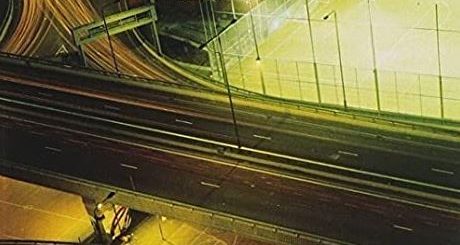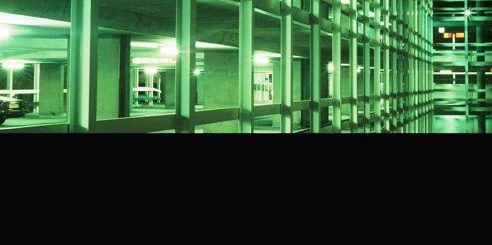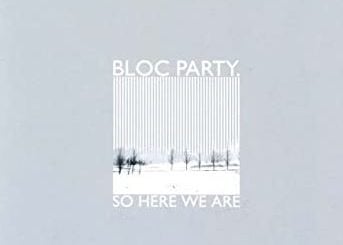Kreuzberg by Bloc Party Lyrics Meaning – Traversing Emotional Walls and the Search for Connection
Lyrics
Just like the city, I will never be joined
What is this love? Why can I never hold it?
Did it really run out in the strangers’ bedrooms?
I
I have decided
At twenty-five
Something must change
Saturday night in East Berlin
We took the U-Bahn to the East Side Gallery
I was sure I’d found love with this one lying with me
Crying again in the old bahnhof
I
I have decided
At twenty-five
That something must change
After sex
The bitter taste
Been fooled again
The search continues
In the labyrinth of modern music where themes of love and discovery are explored in countless ways, Bloc Party’s ‘Kreuzberg’ stands out as a hauntingly introspective piece. The song does not simply skim the surface of youthful yearnings or love’s fleeting chase; it delves deep into the psyche, revealing the complexities of the human heart set against the backdrop of Berlin’s famed district.
From the onset, ‘Kreuzberg’ enthralls listeners with its rich emotional tapestry, challenging them to dissect the profound layers of meaning within its lyrics. This article unearths the soul of the song, taking you on an explorative journey through its narrative corridors and unraveling the encrypted messages imbued by the band.
The Metaphorical Divide: A Wall of Emotional Disconnection
Bloc Party wastes no time in painting a vivid representation of internal struggle with the opening lines, ‘There is a wall that runs right through me / Just like the city, I will never be joined.’ Here, the wall is more than a mere physical structure; it is a metaphor for the emotional barriers we erect within ourselves. It’s a reflection on the fragmented nature of human relationships and the perpetual sense of isolation that plagues the modern soul.
The line, ‘I will never be joined,’ echoes with a sense of finality and establishes an ongoing conflict between desire and reality. The song invokes the Berlin Wall as a historical shadow, representing the singer’s personal divide that, like the city post-reunification, remains unsettled even after the wall has crumbled.
A Yearning for Love Amidst Strangers’ Bedrooms
The song’s lyrics, ‘What is this love? Why can I never hold it? Did it really run out in the strangers’ bedrooms?’ poignantly exposes the search for genuine connection in an age of ephemeral encounters. The quest for love often ends in the arms of anonymity, leaving a bitter aftertaste of unfulfillment that lingers like an unanswered question.
Within these lines lies the cruel irony of seeking intimacy where it can’t be sustained, and the unmasking of this reality serves as a sobering reminder of the chase’s futility. Love, as depicted here, is an elusive mirage in a desert of loneliness, remaining perpetually out of grasp.
Decisive Moments in the Turmoil of Youth
Central to the song’s narrative is the proclamation, ‘I have decided at twenty-five that something must change.’ The age twenty-five becomes a symbolic milestone, a moment of clarity within the chaos of coming-of-age. It’s an admission that the current path is untenable, a confrontation that yearns for a redirection in the winding journey of self-discovery.
This pivotal decision signifies a watershed moment in the speaker’s life, where the real and the ideal collide, forcing a reckoning with reality. It’s the conscious awakening that sometimes unraveling is necessary to weave a new tapestry of existence.
The Bitter Aftertaste of Transient Intimacy
The haunting refrain, ‘After sex, the bitter taste, been fooled again, the search continues,’ serves as the song’s stark epiphany. It articulates the aftermath of physical closeness devoid of emotional resonance, the hollow victory of conquered loneliness that fails to heal the deeper wounds of the psyche.
Inherent in these words is not just the ache of unmet desires, but also the relentless drive to persist despite repeated disappointments. It is a raw depiction of the human condition: to be hurt, yet to endure, caught in the relentless tide of seeking what seems just out of reach.
Berlin’s Walls Whisper the Song’s Hidden Heart
By setting the narrative in the eclectic streets of Kreuzberg, a district in the heart of Berlin, Bloc Party infuses the song with a nuanced layer. The East Side Gallery, once part of the Berlin Wall, stands as a monument to freedom and unity yet reminds us of the divisions that once tore the city apart.
This geographical setting is a character in its own right, echoing the protagonist’s internal conflict. Berlin, with its history of separation and the search for identity, mirrors the singer’s personal quest for cohesion amidst the fragments of self. Here lies the song’s hidden meaning: the struggle for wholeness in a world that’s innately divided.








